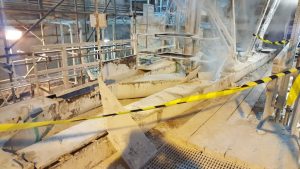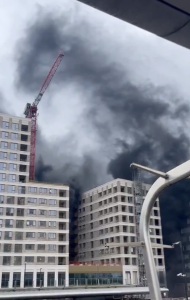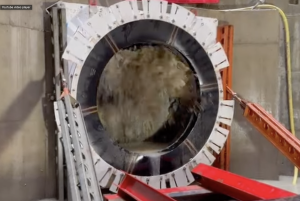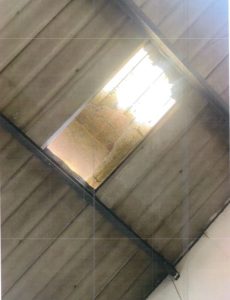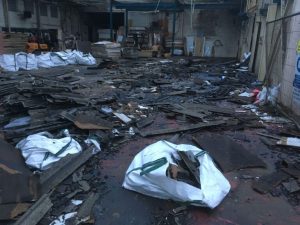Dryliner falls through hole in floor firm fined £140,0000
This post has already been read 247 times!
Two construction companies have been fined after a worker sustained serious injuries by falling approximately three metres through a hole cut into a floor during the refurbishment of a property at in Aldeburgh, Suffolk.
Chelmsford Magistrates’ Court heard how on 27 July 2017, an employee was working as a dry liner for R&B Plastering Limited, who were contracted on the site to Robert Norman Construction Limited, the Principal Contractor (PC).
The employee was working on the second floor of the property, near to a hole that had been cut into the floor to facilitate plaster board being passed up from the level below. The employee fell approximately three metres through the hole, causing him to sustain fractures to his vertebrae and ribs, and severe bruising.
He required hospitalisation for nineteen days and had to wear a back brace for six months. He also suffers ongoing physical and psychological issues as a result of the incident.
An investigation by the Health and Safety Executive (HSE) found that the hole was not adequately protected via covering or access. R&B Plastering Limited had put a risk assessment in place for the work, but it was not adequate, and was not provided to the PC prior to work commencing.
The PC’s own policy outlined the need to review any sub-contractors’ risk assessments prior to them starting work; and by failing to follow this policy the PC missed any opportunity to review R&B Plastering’s risk assessment.
Robert Norman Construction Limited of Framlingham, Suffolk were found guilty in their absence to breaching Section 2(1) and Section 3(1) of the Health and Safety at Work etc. Act 1974 and have been fined £140,000 and ordered to pay costs of £8,426.
R&B Plastering Limited of Bury St Edmunds, Suffolk pleaded guilty to breaching Section 3(1) of the Health and Safety at Work etc. Act 1974 and have been fined £26,700 and ordered to pay costs of £8,426.
Speaking after the hearing, HSE inspector Prentiss Clarke-Jones said: “The employee’s injuries are life-changing and he could have easily been killed. The incident could have been avoided if both companies had fully implemented safe systems of work and identified, during the planning stages, that materials would need to be safely transported between floors.
“Falls from height remain one of the most common causes of work-related injuries in this country, and the controls needed to prevent the associated risks are well known. Dutyholders should follow the guidance on planning works to ensure that risks such as this work at height can be eliminated in the first instance by allowing safe means of access.”




